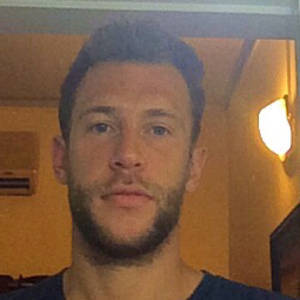Kush-y number
South Sudan is anything but cushy. Logistics today were fraught. But the old adage 'never a dull moment' continues to fit extremely well.
The wet season isn't over but the heat is rising and Juba is sweltering in the mid 30s. The 'international airport' continues to both baffle and frustrate with brainless systems, crackdowns on paperwork, extreme heat and even fewer usable chairs in the 'departure lounge'. There is zero impetus to introduce any form of comfort to the airport as anyone of note uses the air conditioned terminal across the runway. The civilian airport truly is a battle to get through unscathed. Our flight to the field was delayed and we roasted on the runway in the metal aircraft for over an hour, sweat dripping and very few square inches of dry clothing. As we took off the plane didn't ascend with much power and we ended up circling the city and landing with one engine only; the other playing silly beggars. The World Food Programme pilots who do these routes are very capable so it didn't feel like a dangerous situation. The flight was cancelled and we were told to wait for news of the rescheduling.
The need to use Juba time to complete errands kicked back in and we went to get passport photos made, always useful for the next bureaucratic process. After several hours of sweating and overheating my face resembled a tomato, or a lifelong whisky drinker with burst veins. The guy taking the photos straightened my collar and made me do up my top button, but there was little window-dressing that could make me presentable.
Back at the house Poni's Ugandan friend Irene was around as we took tea. Irene is in the early stages of pregnancy and has been working in a bar in Juba. 'Ask her who the father is', sniggered Poni. 'I don't know', said Irene, as they both fell around in fits of laughter.
I told Irene to feel under no pressure to say anything to a random kharwaja like me, but she said one of around ten men could be the father. I was surprised at her candour given the level of judgement faced by African women for most things that they do. Poni then outlined the process of identifying the father of an unborn child. If a woman names the wrong man (because for example she may want the father to be the man who is most financially successful), the baby will not deliver and will still be in the womb, causing the woman pain into the tenth month. It sounds like the tradition to root out the real father involves the prospective fathers dancing for the heavily pregnant woman at which point she's forced to select the correct one or the baby will not be born successfully.
Irene joked that I was the father. It seems a highly unlikely scenario. Poni and I laughed that I could be discounted from the process on emergence of the baby, and I think we were both a little mortified to hear Irene say that the mother's genes express more strongly when it comes to determining the skin colour of offspring. Such cases are not unheard of but are absolute rarities.
Anyway, I am not Irene's baby's father.
Over dinner we met with someone from the Wildlife Service in Rumbek (towards the centre of the country) who has received two years of training from the Kenya Wildlife Service. We talked about traditional hunting in his home area. Crocodiles and hippos apparently remain abundant as local people do not eat their meat. Crocodiles will make future children ugly, and hippos will make them fat. If this protects huge numbers of wildlife and helps to maintain freshwater ecosystems, who am I to try to inject any scientific rationales into proceedings.

Comments
Sign in or get an account to comment.


